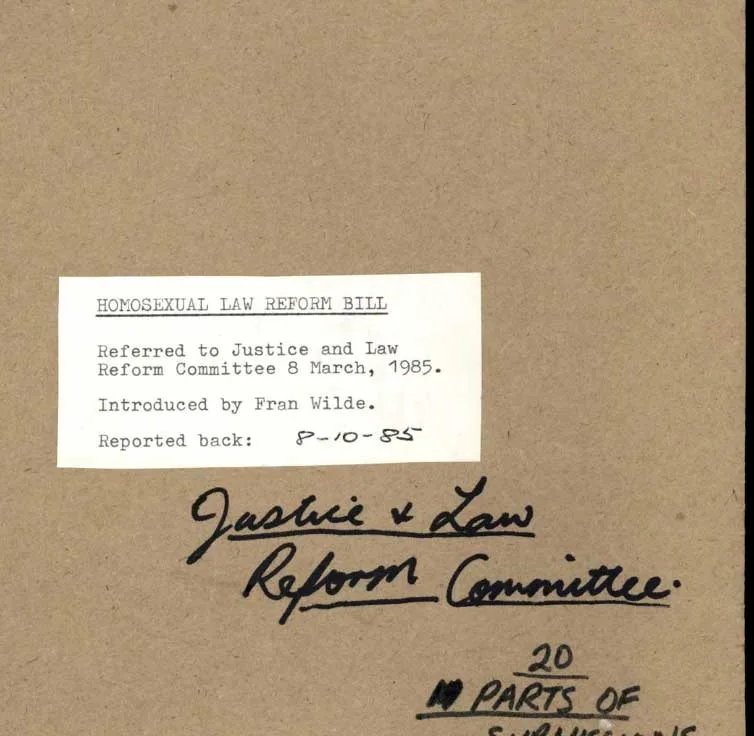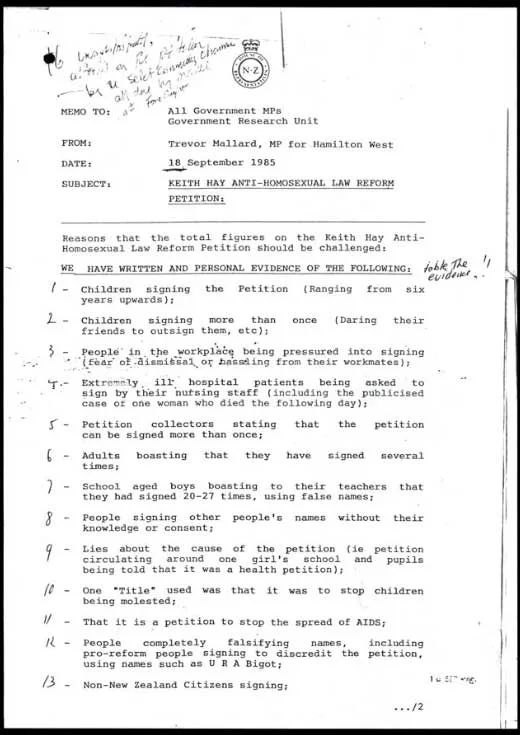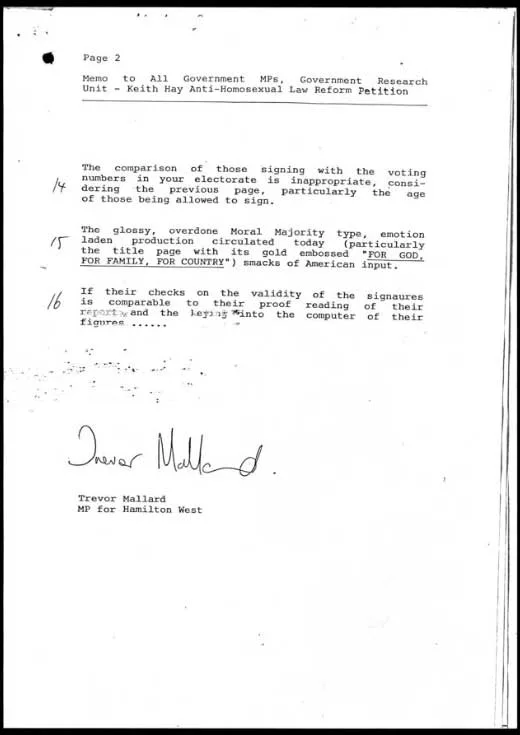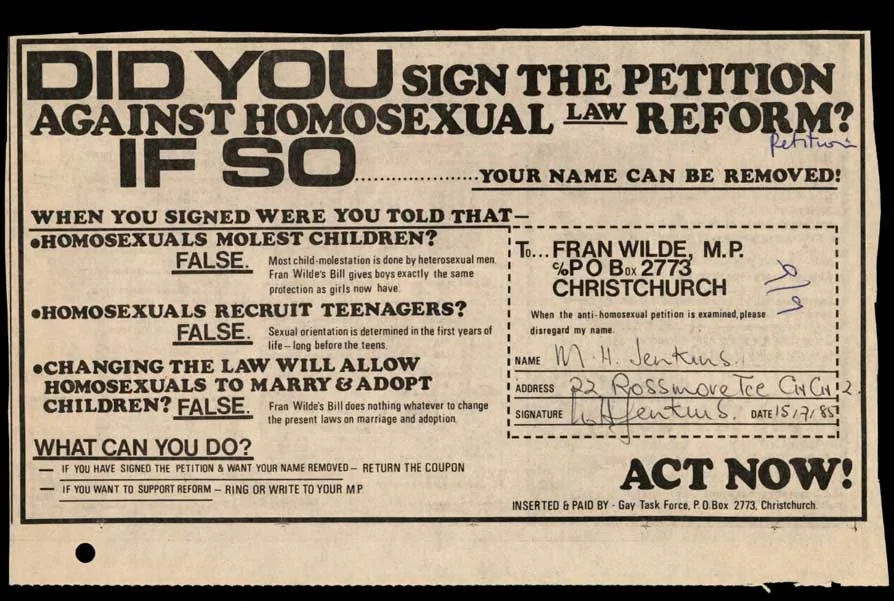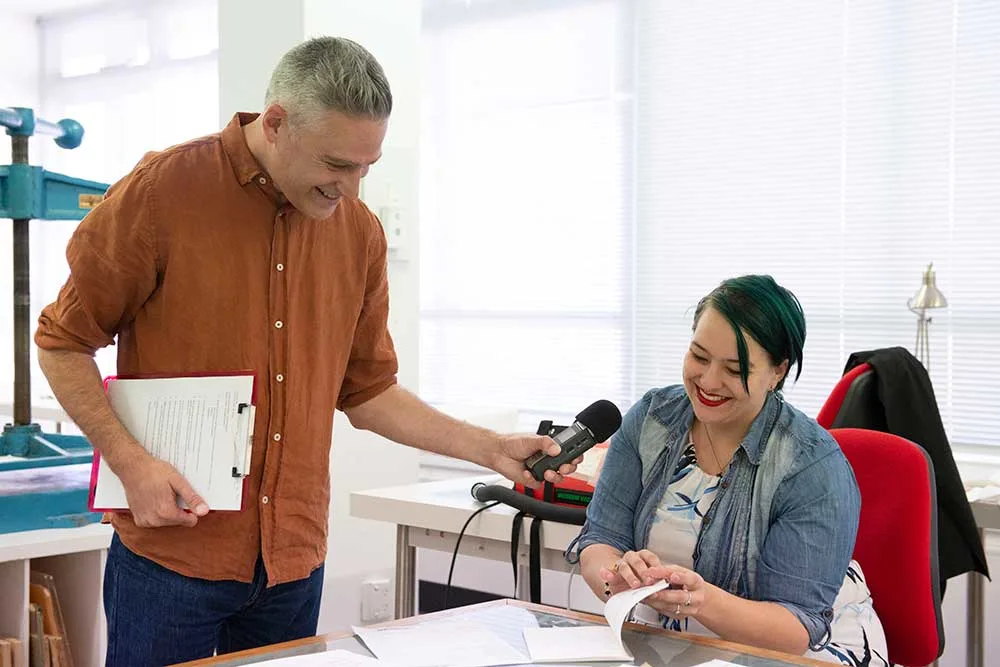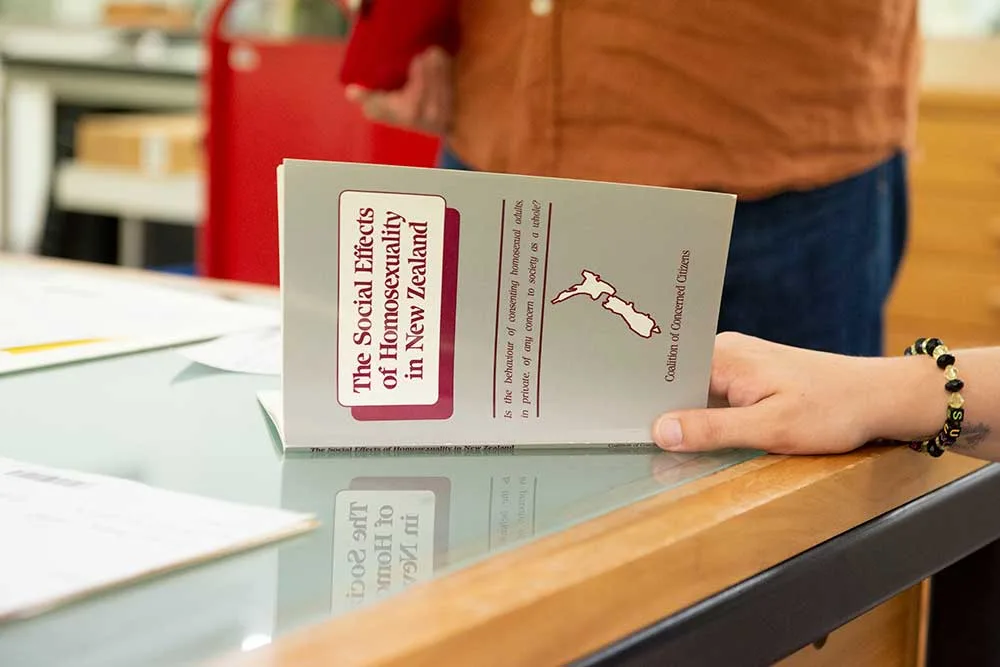Ngā Whakahou Ture Tāne Moe Tāne mā ngā pūranga
Homosexual Law Reform through the archives
It’s hard to imagine an Aotearoa New Zealand where same-sex love was considered a punishable, illegal act. But for most of New Zealand’s colonial history this was the case. Early New Zealand adopted our Criminal Code Act (1893) from British Law which criminalised a range of sexual acts, many of which are retained in our current Crimes Act 1961.
The latter half of the 20th century saw widespread re-writing of social acceptances around the world. What had stood unchallenged for centuries was re-defined through a series of legislative reforms of permitted intimate behaviour. In New Zealand, the Homosexual Law Reform Bill of 1986 – passed 35 years ago– played a key part in redressing individual rights and freedoms.
Aotearoa New Zealand in the 1980s was an explosive era for societal change. There was the divisive Springbok Tour of 1981, the Māori Renaissance, the Nuclear Free Campaign, and the ongoing sexual revolution. These movements challenged prejudices and beliefs around human rights and individual freedoms. Attitudes to racism, colonialism, sexual freedom and environmental concerns were all challenged. What had been taboo was now in open discussion in the public arena. The nation debated.
The Homosexual Law Reform Bill of 1986 ‘came out’ at, and from, this stormy time. On 9 July 1986 the Homosexual Law Reform Bill was passed by parliament, coming into effect on 8 August that year. The reformed act decriminalised sexual relations between men aged 16 and over, ensuring that consensual sex would not result in prosecution and imprisonment as it had in the past.
Although sex between women was not illegal, many lesbians experienced the same social discrimination as gay men and were dedicated supporters of the reform movement.
Archival records from Select Committees hold information about government enquiries, public petitions, and the revision or passing of bills. This information also includes oral and written submissions, proceedings, final recommendations to the House of Representatives and original public petitions.
This file from the Justice and Reform Committee regarding the review of the Homosexual Law Reform Bill includes submissions from the public, academics, organisations, local councils and church groups. Content ranged from Keith Hay’s Anti-Homosexual law reform submissions, later considered by many to be propaganda, to the Gay Taskforce survey on anti-gay and lesbian violence. It also includes a Report on Discrimination and Homosexuality carried out by Auckland University and a Human Rights Commission report on Homosexual law reform, amongst other submissions both for and against reforming the act.
Our archives include a vast and diverse range of subjects that provide insight into the evolving social landscape of Aotearoa New Zealand through the lens of the government record.
Take a dive in to some of our archives connected to the act in this interview by Gareth Watkins from PrideNZ and Lenette Breytenbach from Archives New Zealand (MP3, 24MB).
